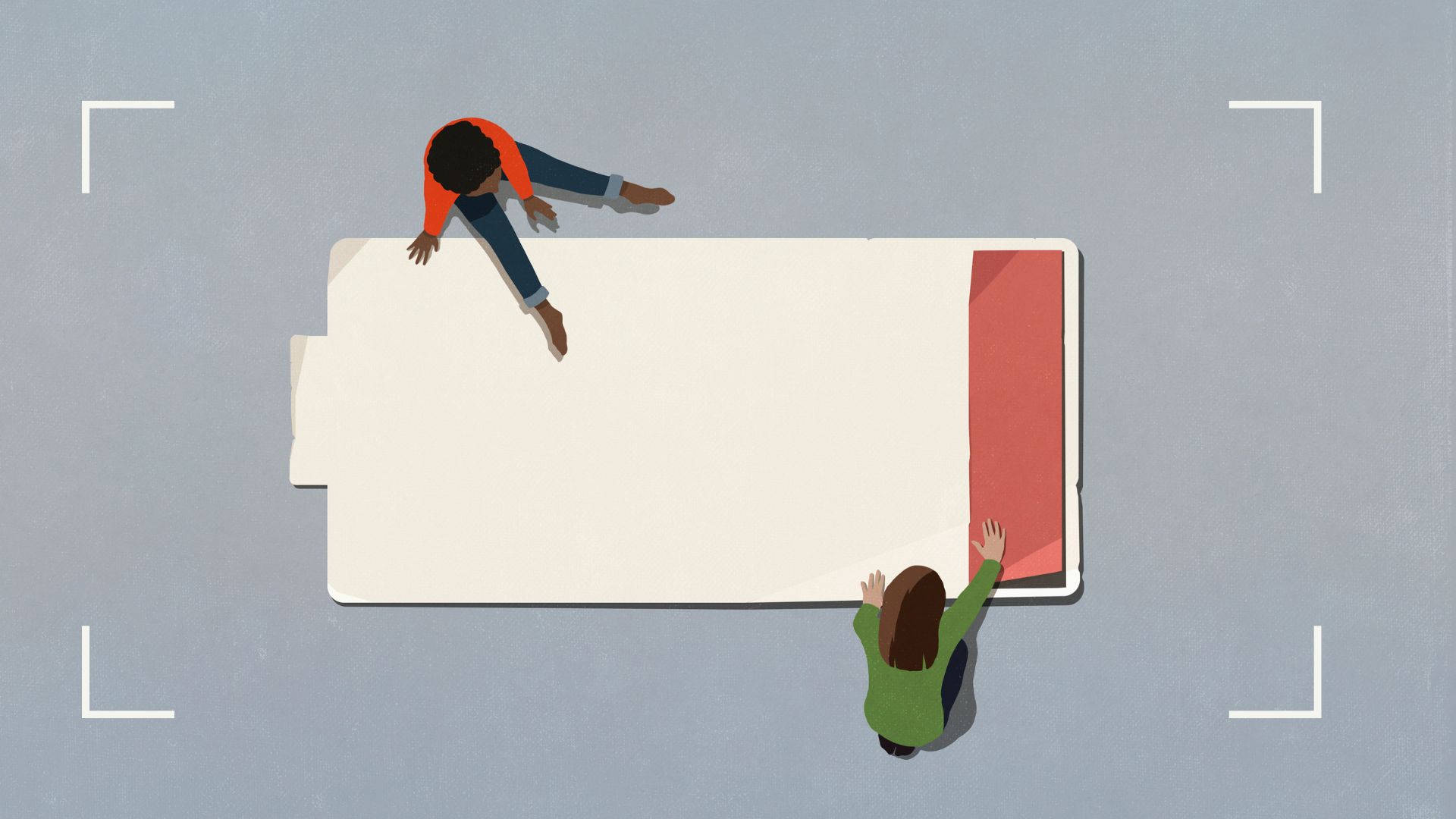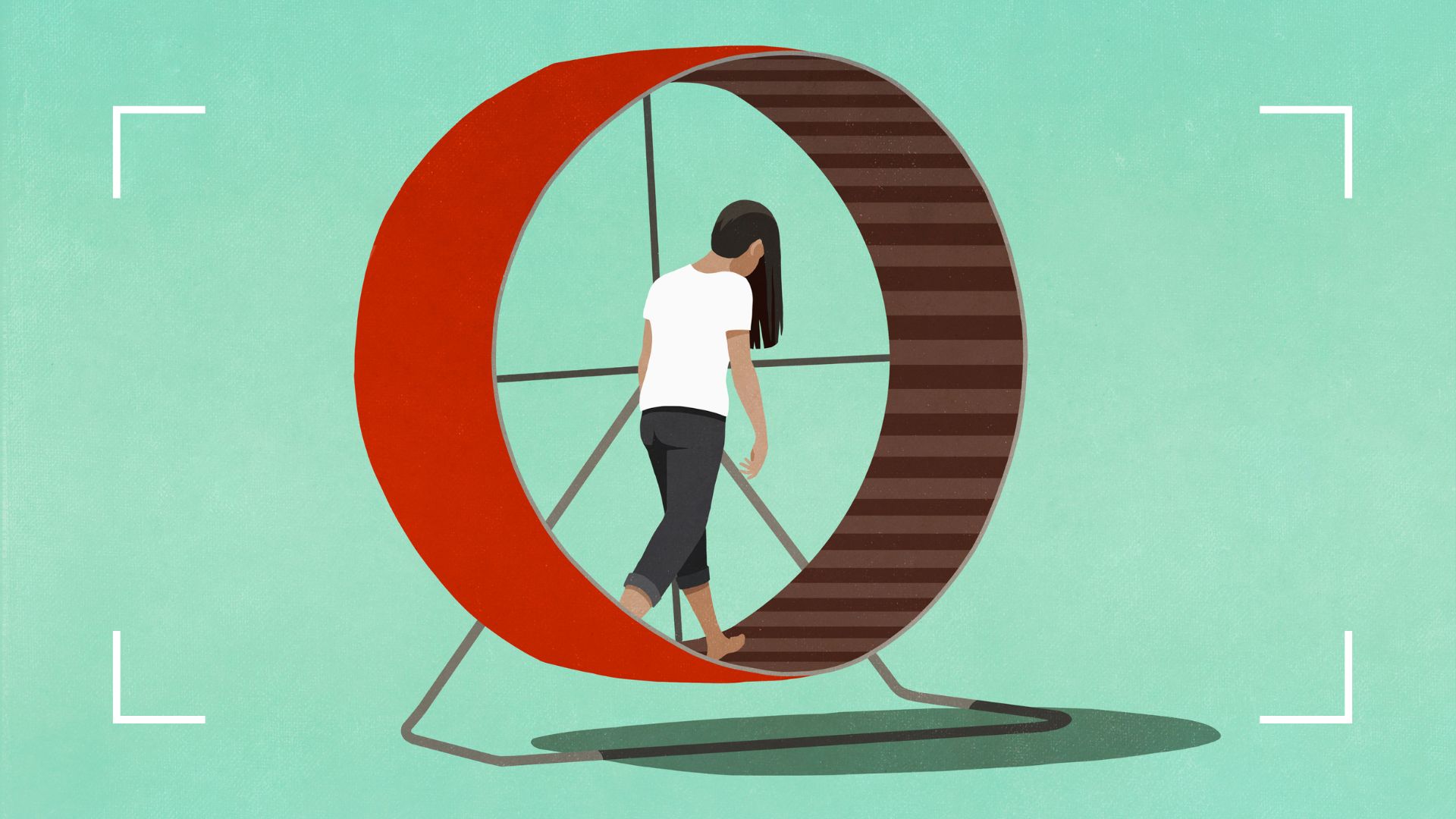How to spot a toxic friendship and when you should let go
A toxic friendship can hurt and destabilize you. We asked experts how to recognize a toxic relationship and how to deal with its effects


Much like romantic relationships, platonic relationships require give and take and can be difficult to navigate. But when a friend takes without giving and leaves you feeling like the relationship is more of a chore than a joy, it could be a toxic friendship.
Toxic friendships can take a toll emotionally and physically, causing stress, anxiety, and sadness. It often starts with an unhealthy power dynamic, experts agree, with one friend constantly driving the relationship. This lack of balance can be down to different attachment styles or an absence of respect on one side. For Minal, it became clear that her friendship with Ellen* was turning toxic when her friend started to belittle her, leaving Minal feeling undermined.
Minal and Ellen became friends in 2015 when they were in their 30s after a mutual friend introduced them. The pair instantly hit it off. “We bonded because we were at a similar life stage,” Minal tells woman&home. “We’d both been in relationships that put us through our paces and had broken up at the same time, so we went through the motions of going through that pain together, emerging, and healing together.” Those shared experiences formed the basis of a close friendship that grew quickly. Over the next four years, Minal and Ellen spent nights out, holidays, and vacations together. But there was an imbalance of power in the relationship from day one, Minal recalls. “I always felt she was undermining my opinions and suggestions, and she would find ways of manipulating situations so they would go in her favor. Whenever I tried to express that I was hurt or upset, there was always an element of gaslighting,” says Minal. Gaslighting is a form of emotional abuse where someone twists events and situations to make someone question their reality. It's also one of the biggest signs of domestic abuse.
On one occasion, Minal says, she was abandoned by her friend on New Year’s Eve in a foreign country, as Ellen hooked up with a man she’d met that night. “She left me on my own, with her belongings, so she could go off and do her own thing. When I found her, she couldn’t understand why I’d been angry and worried. She turned it around on me and ended up locking me out of our hotel room. That trip was a big eye-opener for me in the dynamic of that relationship.”
Signs of a toxic friendship
Kendall Phillips, a licensed counselor based in Texas, says, "Behaviors like not being interested or ready to listen to you when you go to them for emotional support are good signs of a toxic friendship,” she explains. “A toxic friend may expect you to drop everything and provide emotional support for them regardless of your needs or availability, and tends to be the one that only takes and never gives to the relationship.”
According to therapist and relationship expert Dr Kalanit Ben-Ari, people are intrinsically good-natured, and what can seem like toxic behavior may in fact be an imbalance in perceptions and expectations. “I do not believe that a friend can be inherently 'bad' for one's wellbeing,” she comments. “However, it may be the case that the way one friend shows up for another is perceived in a certain way that causes pain and upset, or that the nature of the dynamic between the two friends is upsetting for one of them. This can often be the result of different attachment styles.

There are some tell-tale signs you shouldn’t ignore, however. For example, feeling the symptoms of anxiety before meeting up with a friend and being upset afterward, and constantly feeling put down or manipulated. Over time, you might feel the person brings out the worst in you, whether that’s encouraging you to act in a way that doesn’t align with your values or leaving you angry and upset.
Sign up for the woman&home newsletter
Sign up to our free daily email for the latest royal and entertainment news, interesting opinion, expert advice on styling and beauty trends, and no-nonsense guides to the health and wellness questions you want answered.
Slowly over time, Minal began to feel increasingly drained by her toxic friendship. She realized that the effort she put into maintaining the relationship wasn’t reciprocated. There had been a cycle of dashed expectations, selfishness, lies, and repeated forgiveness. The final straw came when Ellen didn’t show up for Minal’s birthday celebrations, instead completely shutting down the friendship over a recent, seemingly small, disagreement.
“I was in a lot of pain and shock. There was a period of trying to understand what had happened and why it had happened,” Minal says. A few months passed with no contact between the two, before Minal felt able to reach out to Ellen, in a neutral message that didn’t risk opening old wounds. It went ignored. “She never responded… I felt like I never got to have my say.”
The cost of staying in a toxic friendship
Friendship is a form of attachment and, when formed during childhood, it can be particularly difficult to let go - even when it has become detrimental to your own well-being. That was the case for 52-year-old Linda, who finally walked away from her decades-long friendship with Jenny* two years ago. “I miss her at times because we were friends since we were six. She was my closest friend, like a sister,” Linda recalls.
The two stayed close all through their school years, before following different paths when they reached college age. There, the disparities between them began to show. Linda, a journalist, married and had twin daughters in her late 20s, while Jenny enjoyed the trappings of a single, child-free life.
“It was when I was pregnant that things went awry, and Jenny would make disparaging comments about the fact my focus had shifted from my career,” Linda says, adding that things worsened gradually over the years. “She often belittled me, made me cry, and gaslighted me, with me always in the wrong over the most trivial of things. She was vile about my daughters and diminished my grief when my husband died, brushing aside my clinical anxiety.” Despite this, Linda adds, she had to tread on eggshells around Jenny’s feelings, often ending up the fall guy in situations or arguments.

Experiences like these can really work against you when it comes to learning how to be more confident, the experts agree, as they grind you down and ebb away your self-esteem and your faith in your own decisions and choices. If the friend has been in your life for a long time, you might make excuses for them, trying desperately to hang on to the good times you’ve shared. Letting go can be incredibly hard. After all, that person may be one of few who knew you when you were younger, so they represent a connection with your own past. You might also feel a sense of responsibility for them and for the relationship, and guilt at the prospect of giving up.
Eventually, Linda realized that ending a decades-long relationship was better than hanging onto a childhood legacy that had turned toxic.
How to get out of a toxic friendship
Firstly, consider whether it's truly a toxic friendship or a case of miscommunication, says Dr Ben-Ari. “Find a gentle and assertive way to communicate your longing and hurts with your friend might be all you need to bring peace back to the relationship,” she suggests.
Phillips adds that friendships can only be salvaged if both sides are willing to try. That entails the toxic person admitting “they have played a part in how the friendship has become what it is, and acknowledge they have personal work to do”.
Most of us would want to avoid a big showdown or an uncomfortable confrontation, but often that’s what’s needed to bring things to a head. The fallout may be painful, but worth going through to get back your sense of self and find peace. According to Phillips, there are positive ways of doing that. “Create boundaries, never be ugly or disrespectful, but at the same time put yourself first. Be prepared for the toxic person to become emotionally reactive and possibly unable to communicate in a healthy way. Have an exit strategy and be mentally prepared to keep your cool and remain focused and reasonable,” she says.
It often takes time to recover from a friendship that has broken down and ended bitterly, especially if it wasn’t on your terms and you had no opportunity for closure. Dr Ben-Ari suggests remembering the positive aspects of a once-solid friendship. “Take some time to appreciate the good times that you had together and consider how the other person added value to your life,” she advises. “I recommend doing the psychological work first to understand your personal growth, as well as how this may have fed into the friendship.”
Reflecting back, Minal - who runs Intuit Soul Salon, a collection of women’s circles to help others emerge from traumatic relationships - is philosophical about her experience. “I've come to a place of acceptance, but there is an element of grief,” she says. “I make peace with it is by acknowledging that was me then. I look at the growth I've undergone as a person, and the people and amazing friendships I've got in my life now, and I feel like I needed to go through all of that.”
Linda, too, is in a better place, the weight of her toxic friendship with Jenny now lifted. “It’s a great shame, but mostly I feel relief that she’s no longer in my life. I’ve moved on and I’m very happy.”
Allie Anderson is a freelance health journalist and editor with 12 years' experience. She writes for consumers and healthcare professionals and has a particular interest in women's and mental health.
Published in Grazia, Glamour, NetDoctor, and numerous clinical journals, Allie regularly contributes to Patient, Aesthetics, and several trade titles.
She's been editor of three publications, including a pharmacy magazine and a health charity membership magazine.
-
 Dr Amir Khan reveals the 5 symptoms you should 'never' ignore, no matter how 'vague' they are
Dr Amir Khan reveals the 5 symptoms you should 'never' ignore, no matter how 'vague' they areDr Amir Khan, a GP who often appears on ITV's Lorraine, took to Instagram this week to share the symptoms he'll always take a second look at
By Grace Walsh
-
 Head to Hobbs for holiday-ready linen and the most elegant summer dresses you’ll find on the high street
Head to Hobbs for holiday-ready linen and the most elegant summer dresses you’ll find on the high streetWondering where to shop for a chic summer wardrobe? Hobbs has you covered
By Caroline Parr
